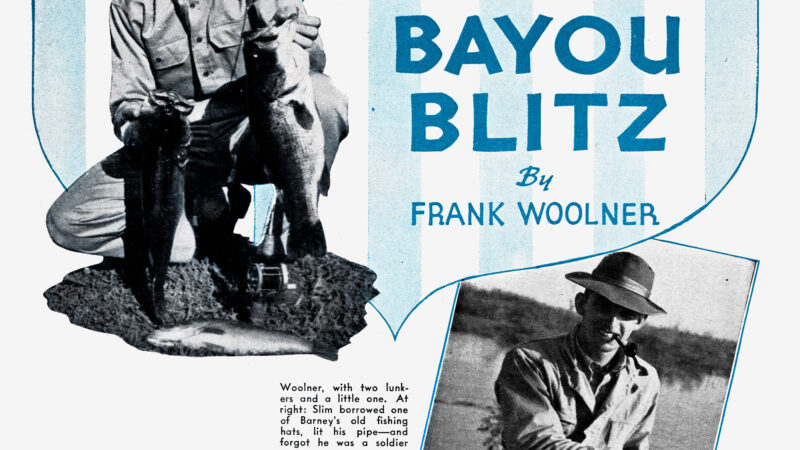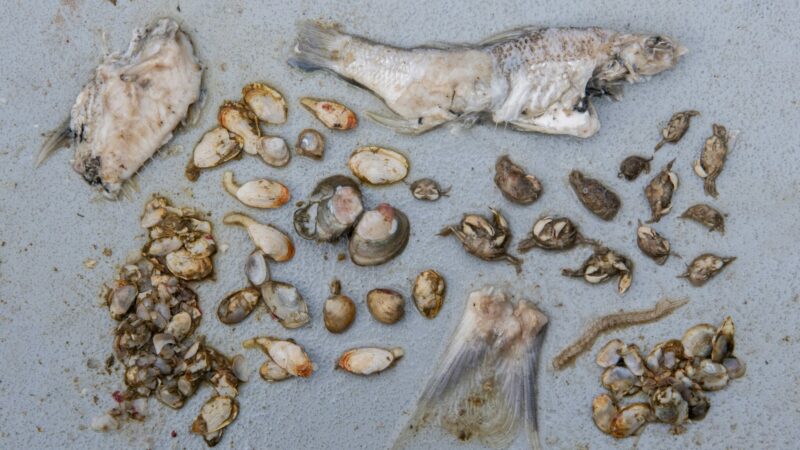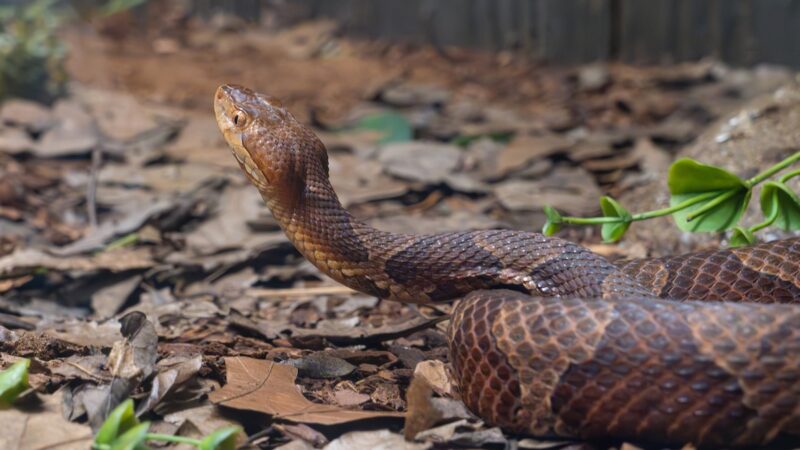The Biggest Crappies Ever Caught
Whether you call them crappies or croppies, or freckles, specks, or papermouths, white and black crappies have enticed America’s anglers since the advent of cane fishing poles. Their allure isn’t necessarily because of the incredible fight they put up or the degree of difficulty in catching them. It is mainly because these prolific fish are so darn tasty. Their mild, white, flaky flesh was seemingly created for the frying pan.
Which makes one wonder: How many crappies would have made the record books had they been measured instead of filleted?
All About Crappies
There are two subspecies of crappie native to North America. They are members of the black bass family, and both are noted in the record books.
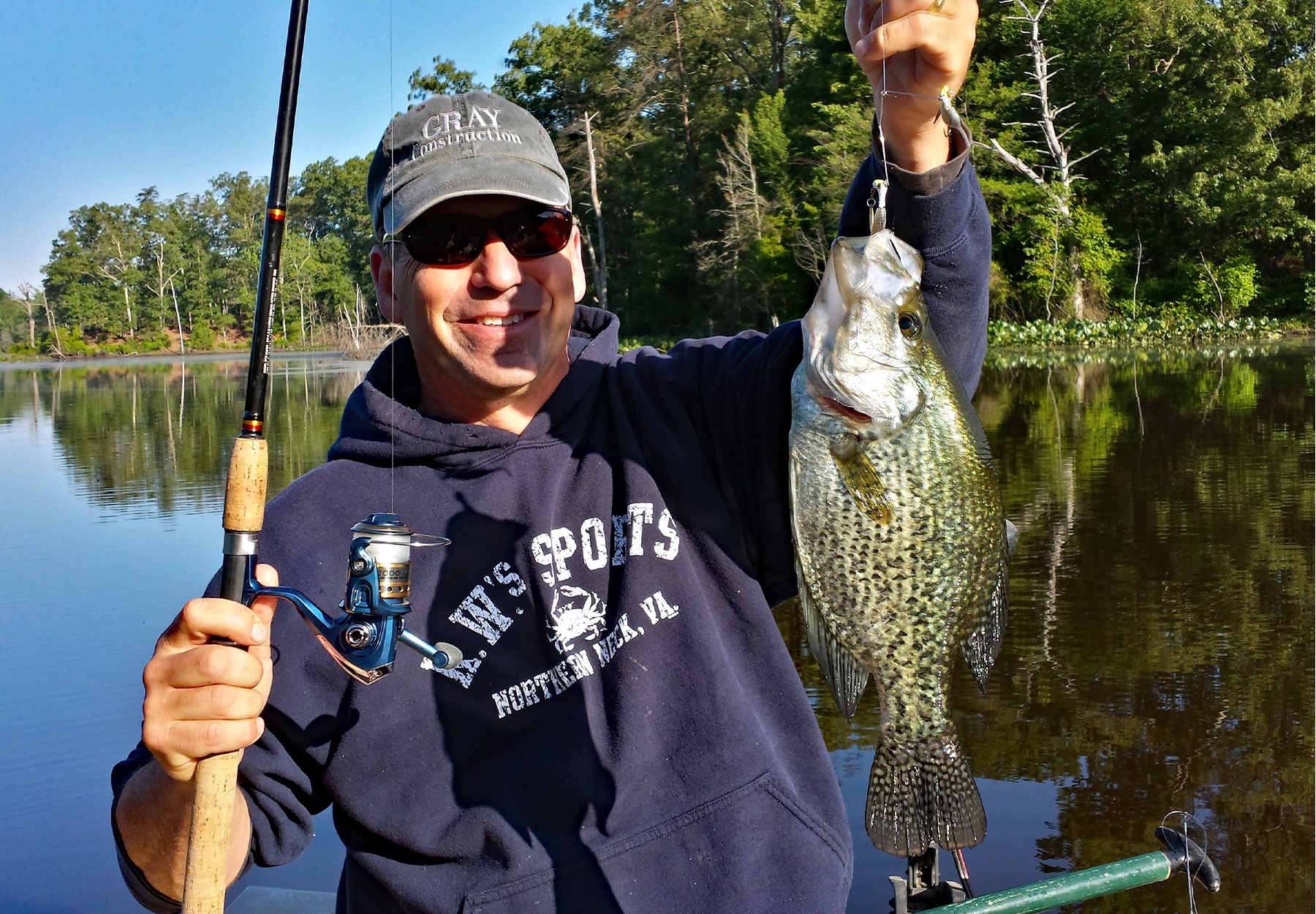
Photo by Ken Perrotte
The black crappie (Pomoxis nigromaculatus) is native to most of the eastern United States, but it has been stocked so extensively in lakes and ponds that it is now found almost nationwide and in a few Canadian provinces. Its cousin, the white crappie (Pomoxis annularis), is generally lighter in color and has vertical, black stripes. According to a distribution map published by the U.S. Fish and Wildlife Service, white crappies are present (but noticeably scarce) in a large swath of the Midwest from West Texas up through the arid western states, and across the Rocky Mountains into western Montana.
The two species can be difficult to differentiate, and the only proven way to tell them apart is by counting the spiny rays on their dorsal fins. Black crappies have seven or eight rays, while white crappie have five or six. Black crappies also have irregularly arranged speckles and blotches in their color pattern. Sometimes, and especially during spawning season, these markings can become very dark (hence the name).
Crappies can be aggressive feeders, especially in the morning. They’ll readily hit jigs, small spinning baits, crankbaits, and, of course, live minnows.
Some of the Biggest Crappie Ever Caught (and a Record Book Controversy)
Any crappie that pushes the 3- to 4-pound mark is in the trophy class. Fish over 5 pounds are humongous specimens, as anyone who’s joyfully pulled in a slab 2-pounder will attest to.
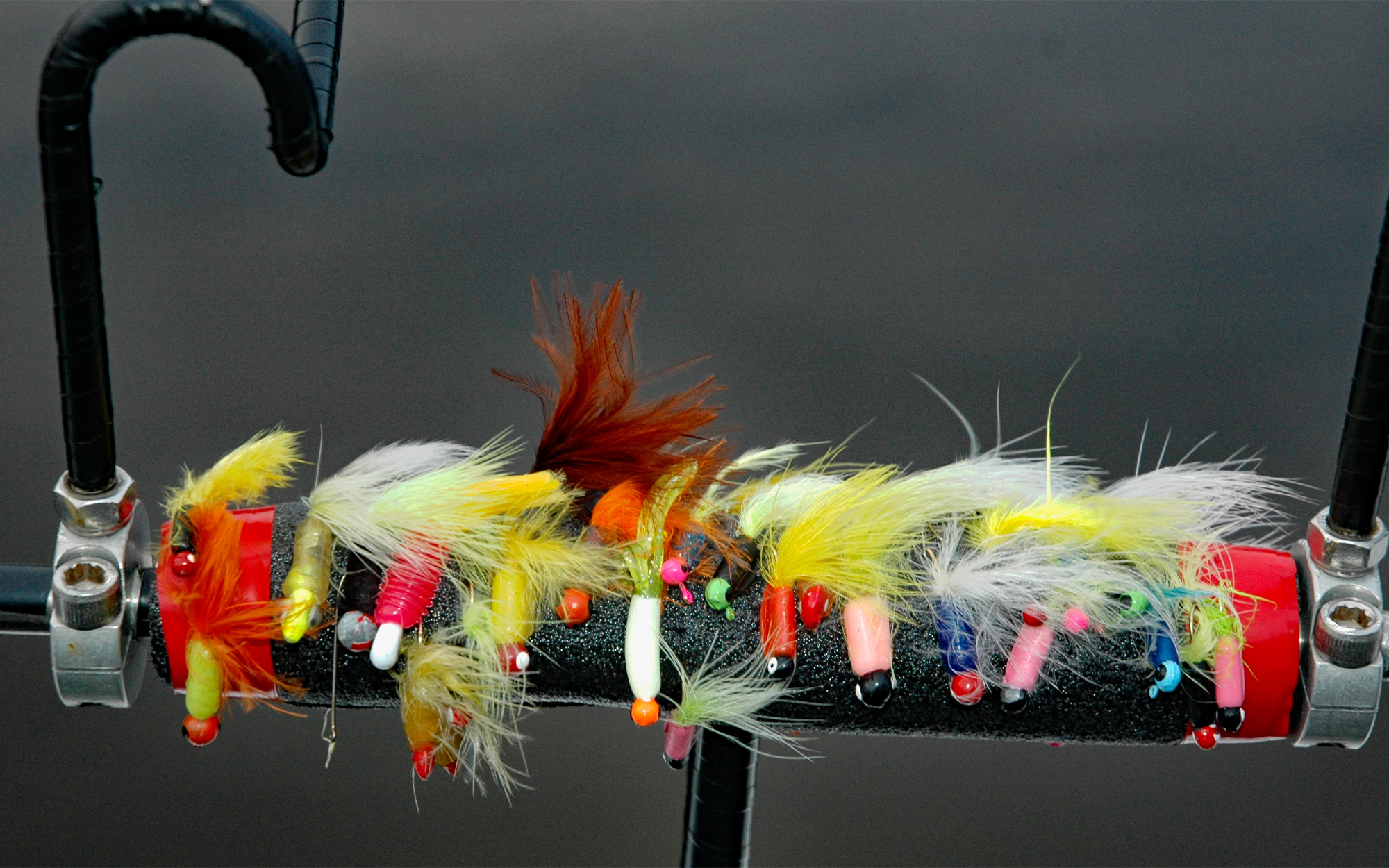
Photo by Ken Perrotte
A check of state fishing records shows five states recognizing crappie that weighed 5 pounds or more. The South Carolina records for white and black crappie are over that benchmark, and both of those fish were caught more than 50 years ago. Meanwhile, more than 30 states list crappie records exceeding 4 pounds.
There’s still a bit of controversy when it comes to the biggest crappie ever caught, however. The International Game Fish Association, which is the de facto record-keeping organization for fish caught with a rod-and-reel, lists the all-tackle world record as a black crappie weighing 5 pounds, 7 ounces. The fish was caught from a pond in Tennessee in 2018.
Read Next: It’s OK to Keep Trophy Crappie
But some still think the true world record belongs to a 12- or 13-year old Louisiana girl named Lettie Robinson, who reportedly caught a 6-pound black crappie from the Westwego Canal in 1969. Although there is precious little documentation and no known photos of the catch, Louis Bignami writes about it in his 1991 book, Stories Behind Record Fish. (According to Bignami, Robinson caught the 6-pounder using an old cane pole and some worms she’d dug herself.) To this day, Robinson’s 6-pound crappie is ranked No.1 by the National Freshwater Fishing Hall of Fame in Wisconsin, but because it’s not accepted by the IGFA, a shadow of doubt hangs over it.
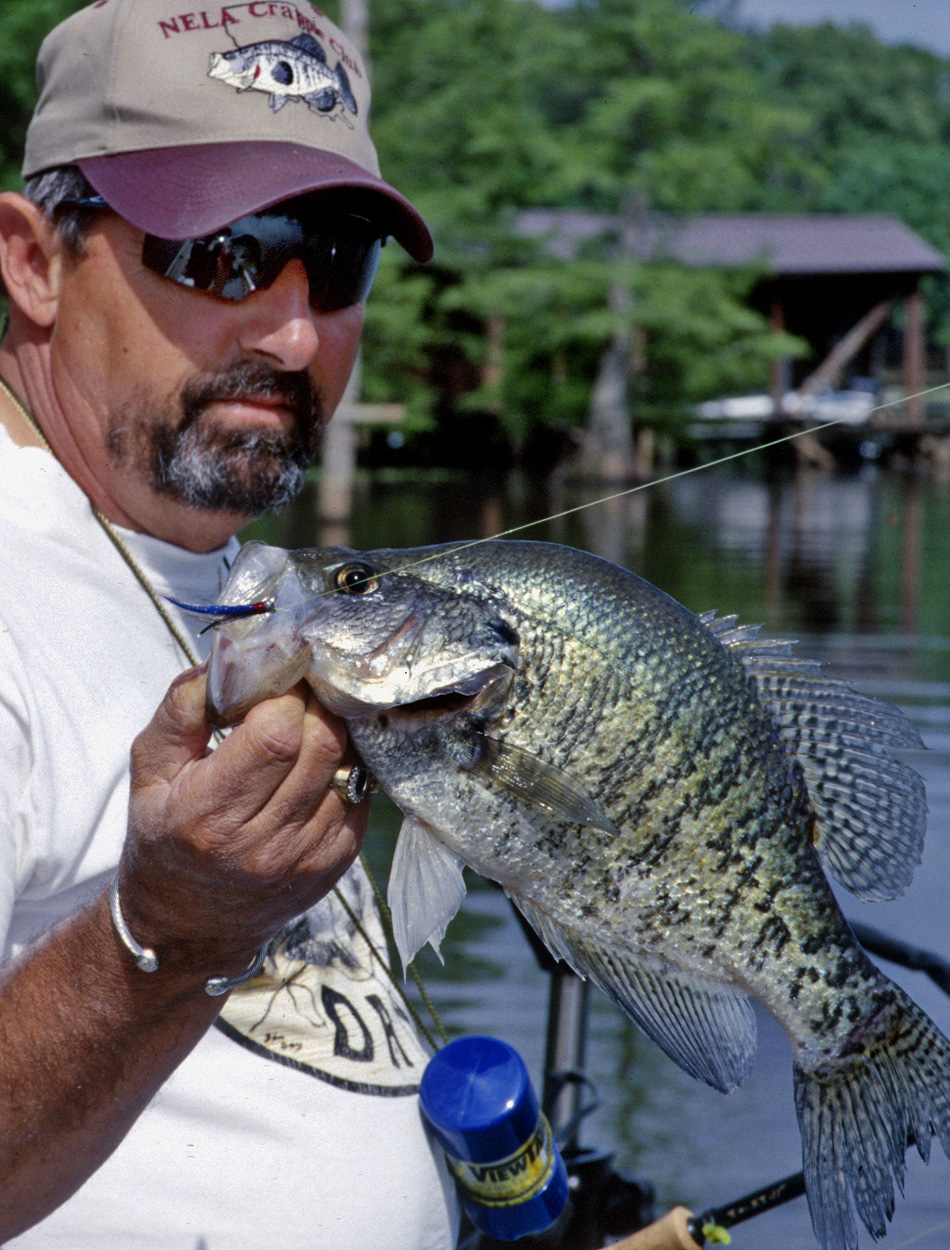
Photo by Ken Perrotte
A list of big crappies doesn’t end with the all-tackle world record, either. The IGFA also recognizes length records for crappie that were caught, documented, and released. It used to maintain a list of line- and tippet-class records for the two species as well, but IGFA angler recognition manager Zack Bellapigna tells Outdoor Life that its record book underwent a major overhaul in 2017, when the organization implemented a minimum weight requirement for these records.
“This [change] required the fish to weigh half of the line class in order to qualify,” Bellapigna explains. “With that being the case, the only records available currently are the all-tackle and length records for both species.”
Here is a closer look at those IGFA-verified crappie records.
All-Tackle Black Crappie Record: 5 pounds, 7 ounces
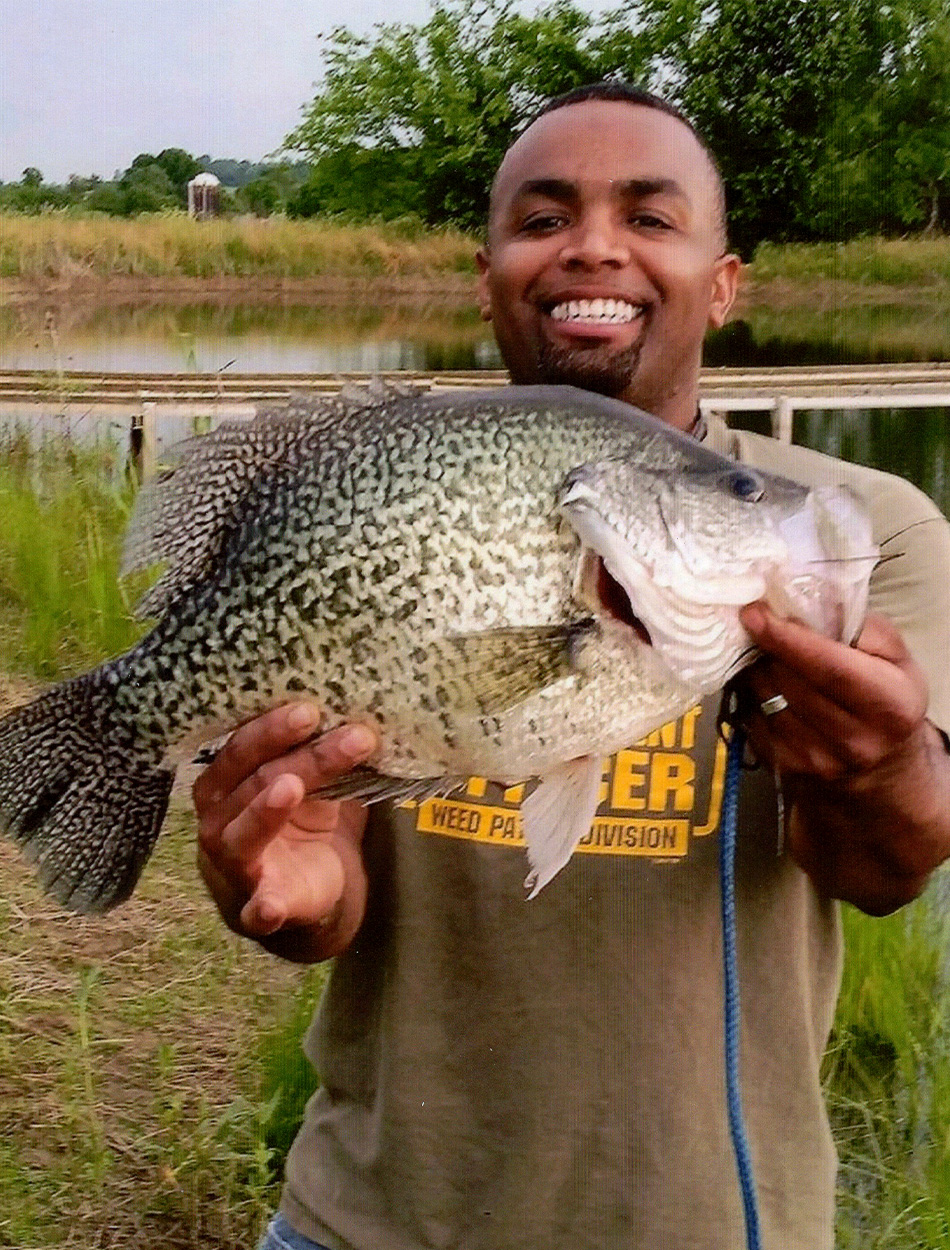
Photo courtesy IGFA
Angler Lionel “Jam” Ferguson caught the current all-tackle world record black crappie (and the reigning largest crappie in the IGFA record book) on May 15, 2018. He was fishing in Tennessee’s Richeison Pond, which is privately owned. The fish measured 19.25 inches long and weighed 5 pounds, 7 ounces. It was a chunky fish with a 17.75-inch girth.
Ferguson was fishing that evening with a Shakespeare rod matched with a Pflueger reel spooled with 6-pound Zebco line. His black crappie, caught with a jig, eclipsed a world record that had stood for a dozen years.
Read Next: The 20 Best Crappie Lures of 2024, Tested and Reviewed
They grow them big in the Volunteer State. The Tennessee state record for white crappie is just two ounces short of the all-tackle world record. Angler Bill Allen caught that 5-pound, 1-ounce whopper from another private pond in 1969.
All-Tackle White Crappie Record: 5 pounds, 3 ounces
Fred Bright’s all-tackle white crappie record has held up for 67 years, which is longer than any other record on this list. Bright caught the 5-pound, 3-ounce fish in Mississippi’s Enid Dam on July 31, 1957. There are no known photos of the fish. The fish was reportedly 21 inches long with a 19-inch girth.
According to the IGFA, Bright was using a Denison-Johnson reel spooled with Ashaway line. There is no mention of the type of lure or bait he used.
All-Tackle Length Record, Black Crappie: 16.14 inches
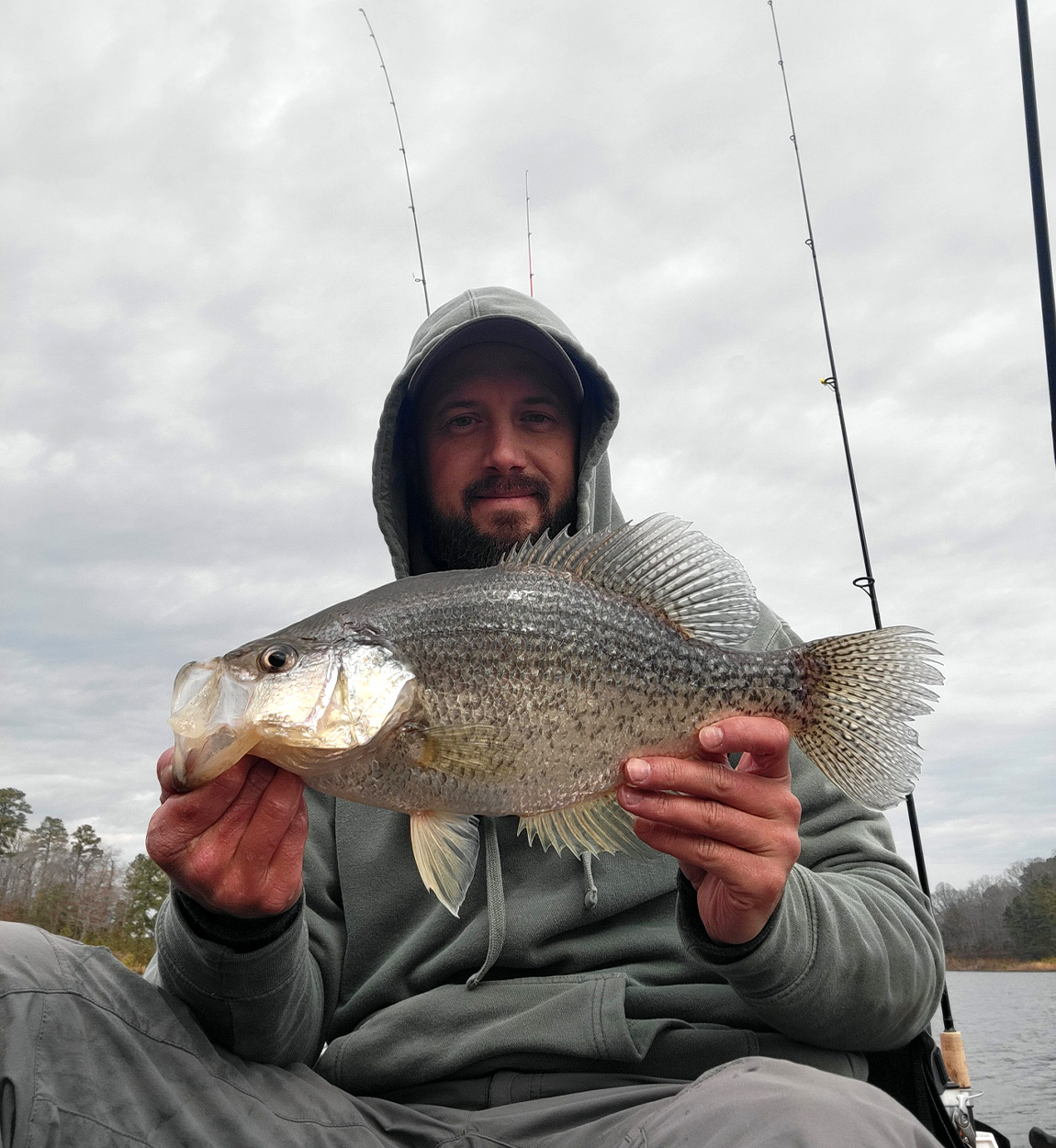
Photo courtesy IGFA
Angler Derek Merricks beat his own crappie record earlier this year. He caught the 16.14-inch-long black crappie in Virginia’s Little Creek Reservoir on Feb. 10. His previous record, a 14.96-inch fish caught in December 2023, came from the same reservoir.
Merricks was wielding a St. Croix Premier rod matched with a Shimano Stradic 1000 spinning reel and 6-pound Berkley Vanish fluorocarbon line. He caught both record fish using live minnows.
All-Tackle Length Record, White Crappie: 15.35 inches
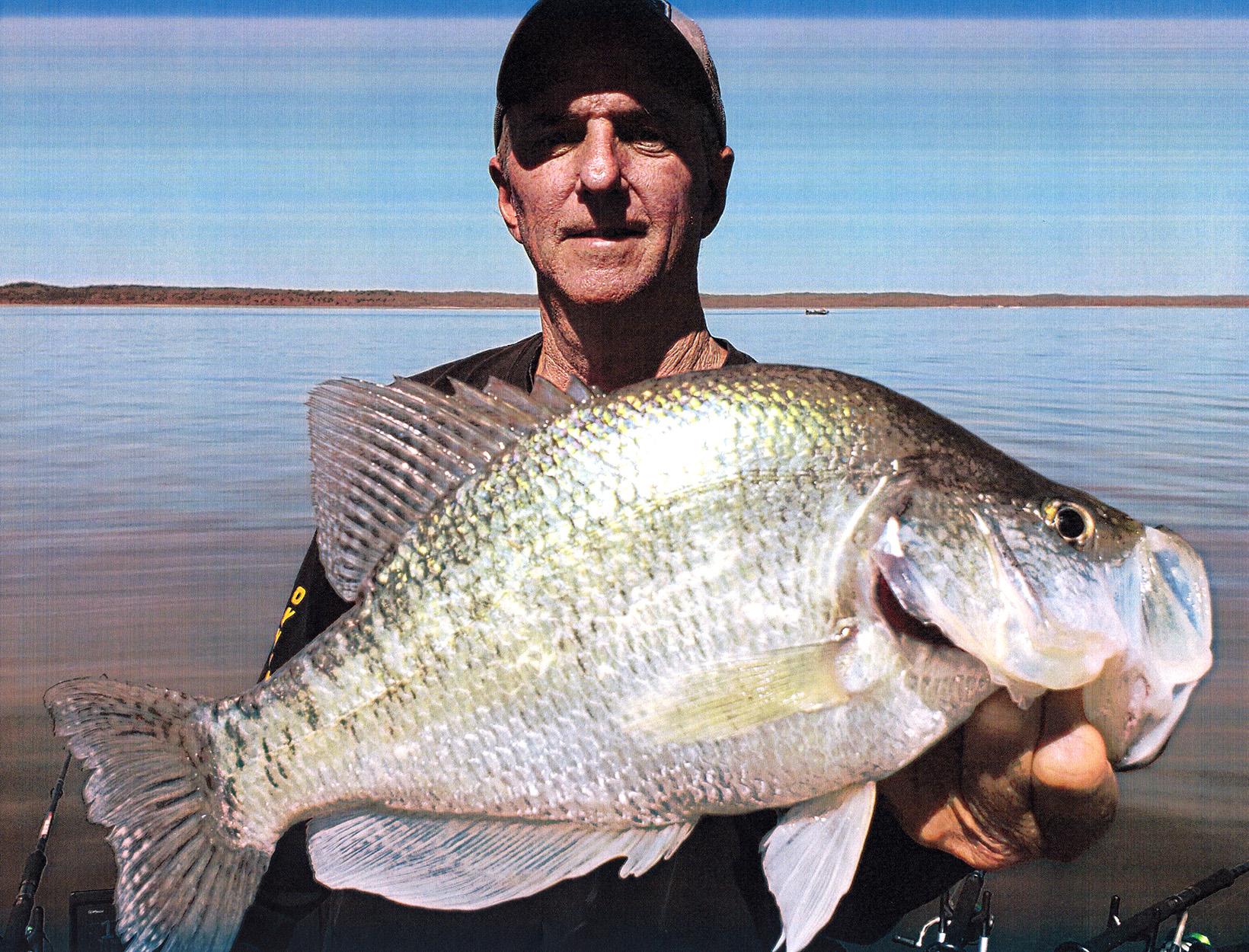
Photo courtesy IGFA
Doug Borries caught his 15.35-inch white crappie on Oct. 22, 2022. He was fishing Grenada Lake, which has a long reputation as a trophy crappie destination. Borries was fishing with a B’n’M rod and an Okuma reel spooled with 10-pound Stren line. He was casting a hand-tied jig.
Junior Length Record, Black Crappie: 13.39 inches
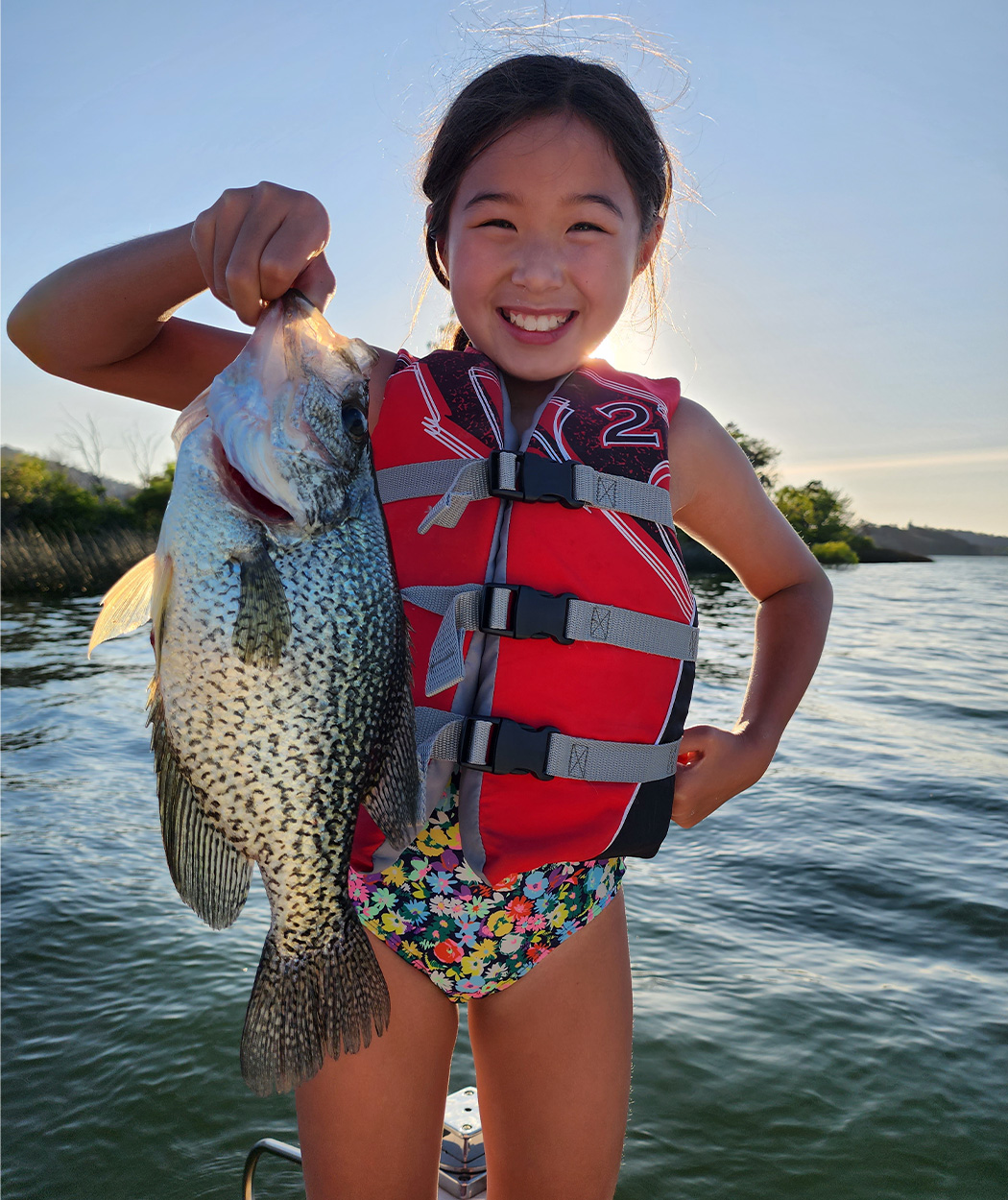
Photo courtesy IGFA
Young Kate Kwak was loaded for big game when she hooked into her record black crappie, a 13.39-incher she caught in California’s Clear Lake on June 14, 2023. Her G Loomis PR 844S rod was equipped with a Shimano Stradic 3000 reel spooled with 50-pound PowerPro line. The fish ate a minnow.
Fly-Fishing Length Record, Black Crappie: 14.57 inches
Bob Gaines was fly fishing Lake Perris in California on July 26, 2019, when a record-breaking black crappie inhaled his wooly bugger. There are no known photos of the fish, which reportedly measured 14.57 inches long. Gaines was fishing a Sage rod paired with an Orvis reel and fly line.
Fly-Fishing Length Record, White Crappie: 15.35 inches
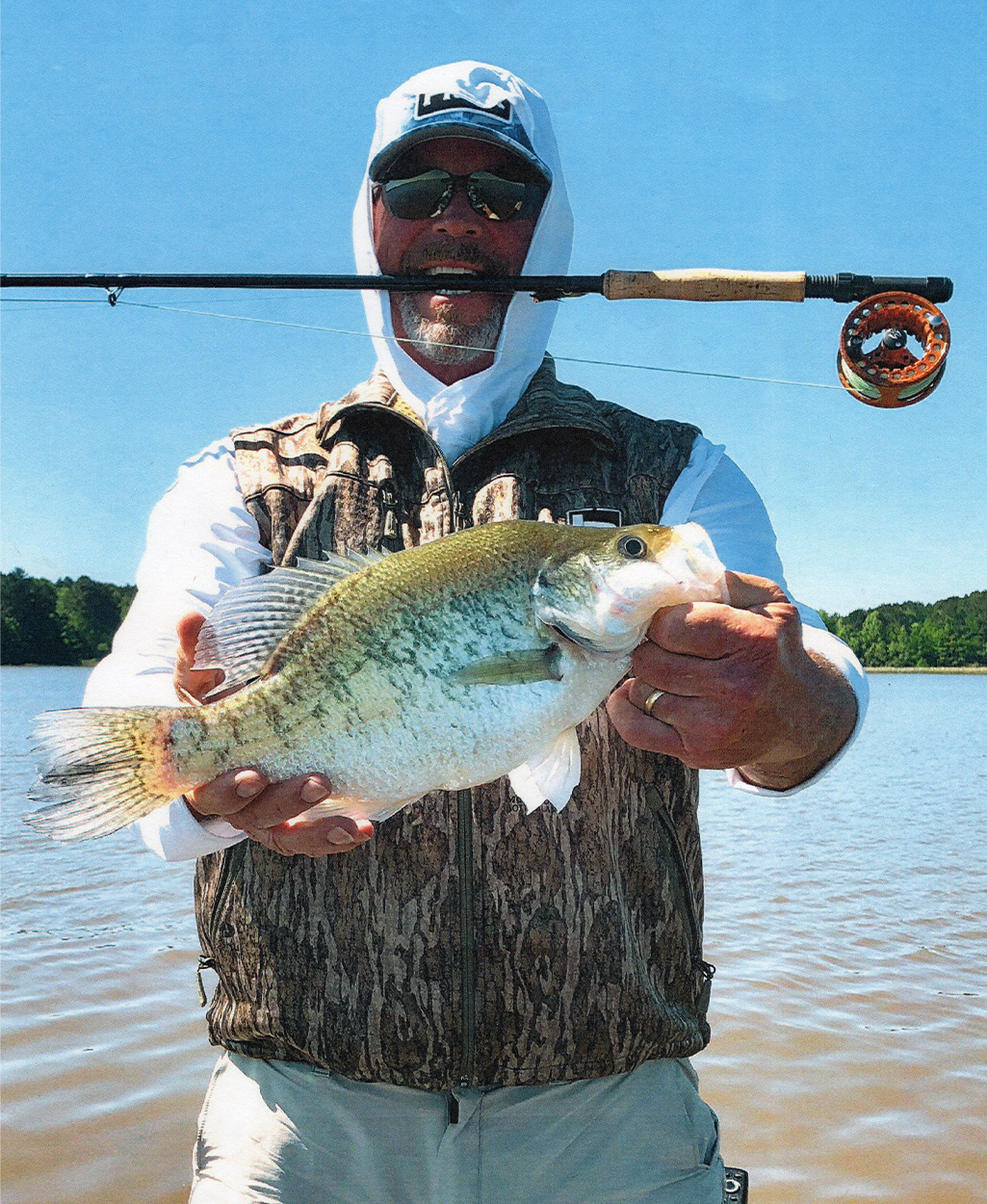
Photo courtesy IGFA
Michael T. Boleware holds the pending fly-caught world record with a white crappie he caught earlier this year on Mississippi’s Grenada Lake. That fish, caught on March 20, measured 15.35 inches. Boleware was using a Pflueger rod with a Maxim Catch reel and 8-pound line. The fish hit a sculpin imitation.
*This record is pending. If approved by the IGFA, Boleware will top his own existing record, a 14.96-inch crappie he caught from Ross Barnett Reservoir on April 19, 2023.
Junior Length Record, White Crappie: tie
The current junior length record for white crappie is listed as a tie in the IGFA record book. According to the organization’s rules, a fish has to be at least 2 centimeters longer than an existing record to beat it.
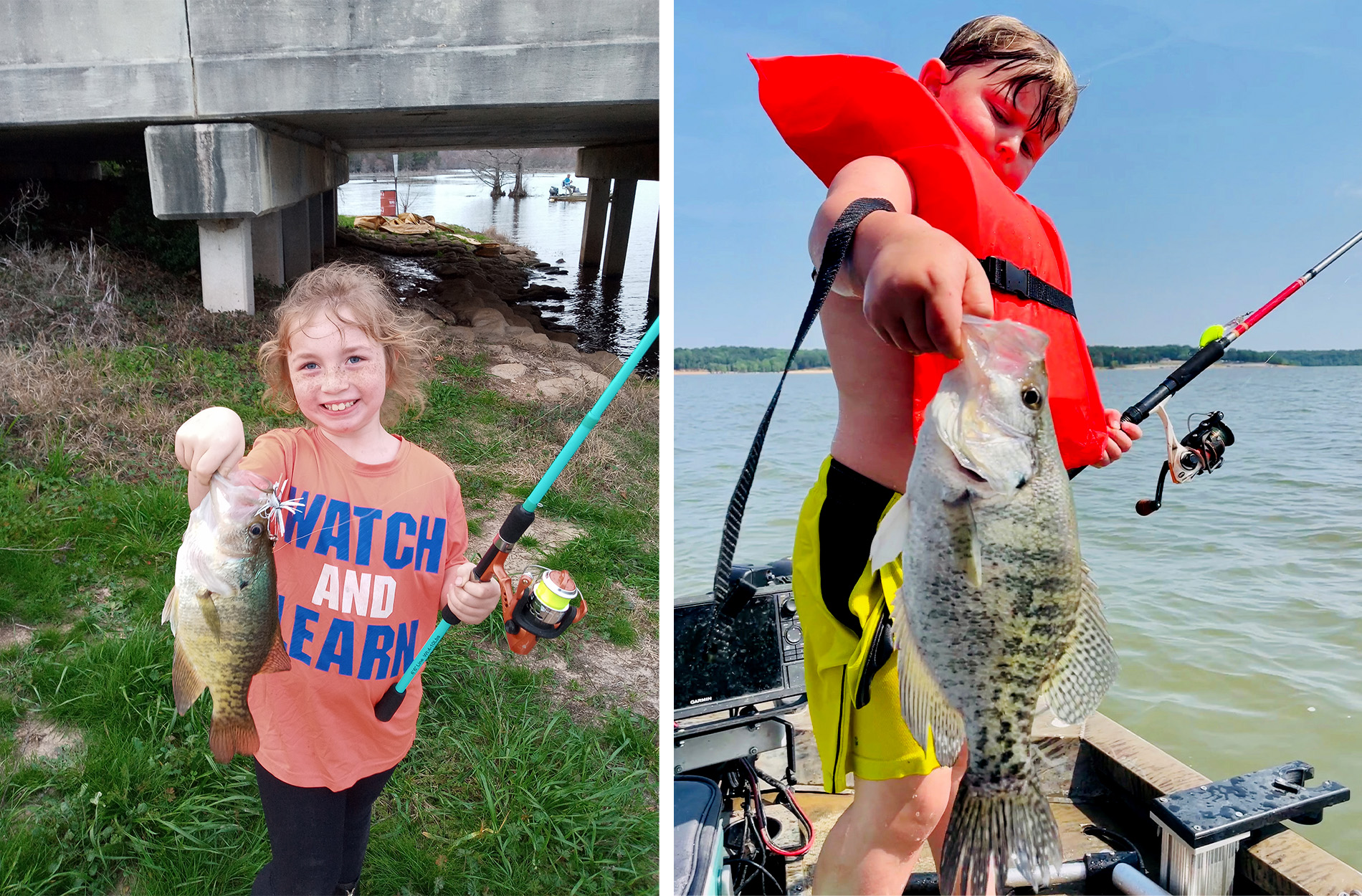
Photos courtesy IGFA
Jasmine Hammontree came close to doing this on Feb. 16 of this year, when she landed a 12.99-inch white crappie from Vernon Lake, a 4,200-acre reservoir in Anacoco, Louisiana. She was using a colorful Sougayilang rod and a South Bend 110 reel, with a Strike King Rocket Shad lure tied on the business end.
But Hammontree’s fish wasn’t quite big enough to unseat the 12.6-inch white crappie that James Callahan Barton caught in Mississippi on June 4, 2023. Barton was fishing on Sardis Lake. He used a B’n’M West Point rod with a Lew’s Xfinity size 30 spinning reel and 15-pound Spiderwire. The fish ate a chartreuse-and-green Bandit 300 crankbait.
FAQs
That answer depends on who you ask. Most would point to the 5-pound, 7-ounce black crappie that was caught in Tennessee in 2018, and which is ranked No. 1 in the IGFA’s book of fishing world records. Others would say that record belongs to a young Louisiana girl who reportedly caught a 6-pounder back in 1969. Although there is no photographic evidence of the catch, it’s still ranked No. 1 by the National Freshwater Fishing Hall of Fame.
Big is a relative term, and crappies are some of the smallest members of the black bass family, averaging around 1-1.5 pounds. Any crappie over 2 pounds is something to brag about in most panfishing circles. Fish pushing 4-5 pound mark are the true “slabs” but these fish are pretty rare in most parts of the country.
Like many other warm water species, crappies typically grow bigger in southern states like Florida, Mississippi, Tennessee, and Texas. Lakes in the Midwest are also known to kick out some big crappies. A few of the most well-known trophy crappie lakes in the country are: Grenada Lake in Mississippi, Lake Fork in Texas, and Alabama’s Weiss Lake.
Final Thoughts on the Biggest Crappies Ever Caught
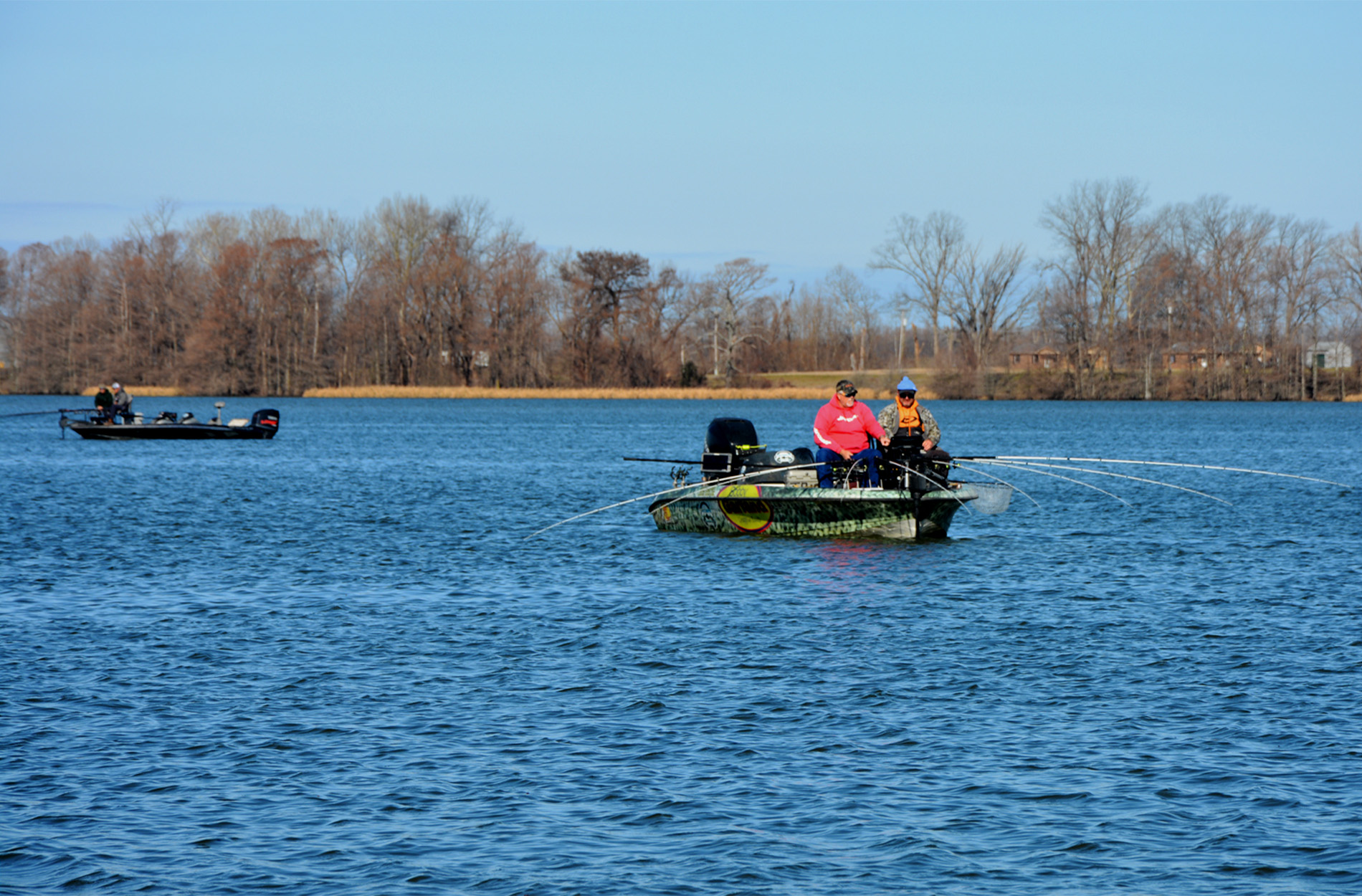
Photo by Ken Perrotte
As fun as it is to catch crappie, a lot of anglers like to eat them even more. And because so many fish have ended up on the cleaning table over the years, it’s hard to say with 100 percent certainty what the biggest crappie ever caught was. Records are still being broken, though, and with anglers using new technology like Forward Facing Sonar to find bigger fish, this trend will likely continue.
The post The Biggest Crappies Ever Caught appeared first on Outdoor Life.
Source: https://www.outdoorlife.com/fishing/biggest-crappies-ever-caught/


